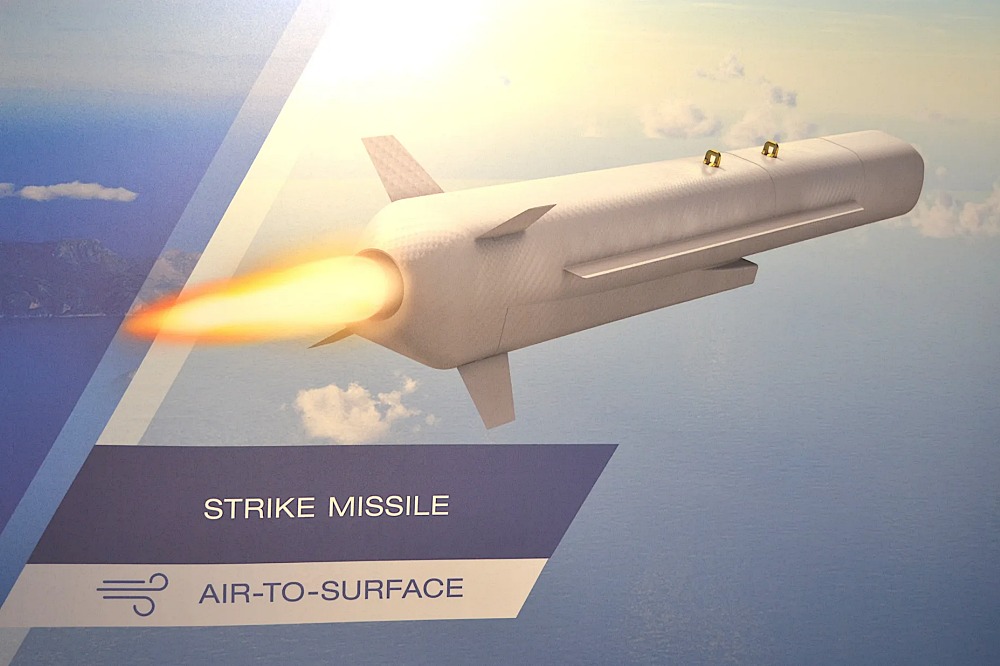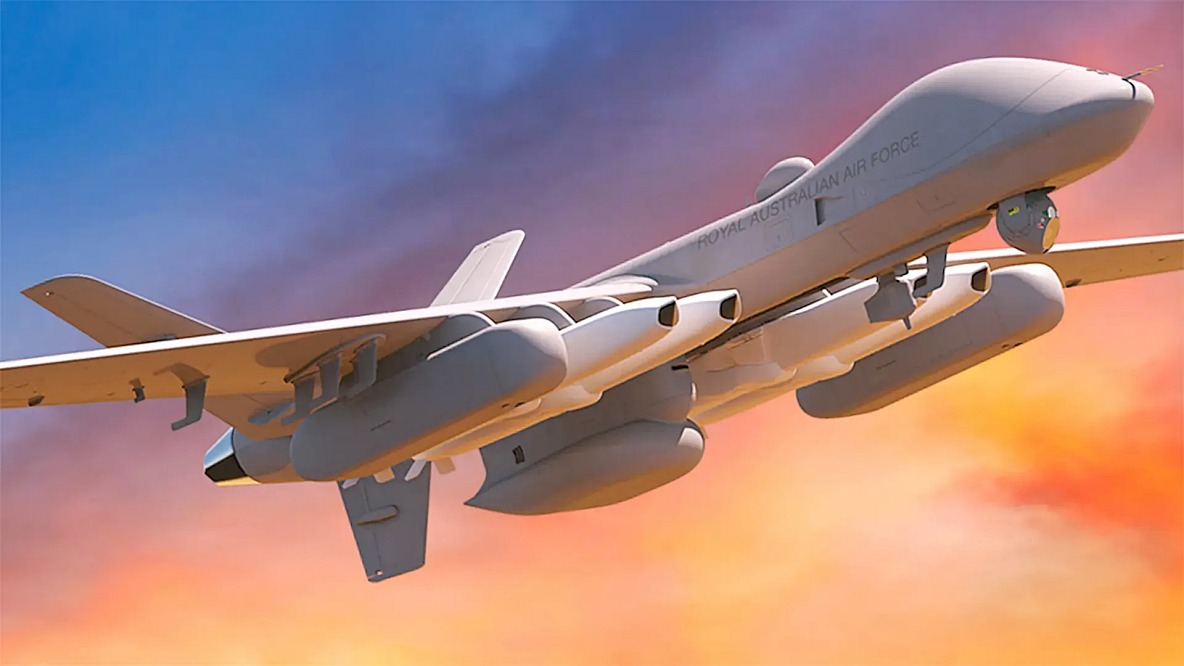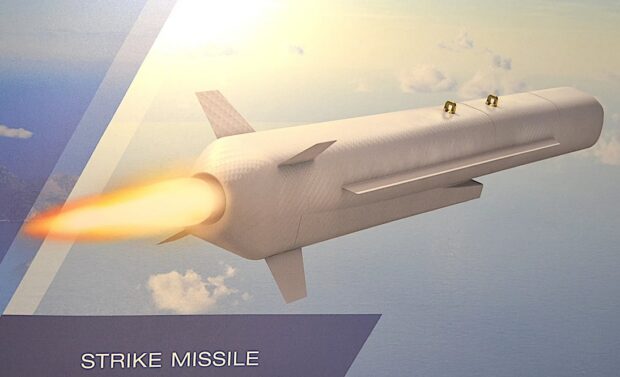– General Atomics has offered a look at a new air-to-surface missile it is developing. The emergence of the project comes at a time of great and still growing interest, especially within the U.S. military, in new air-launched strike munitions, particularly ones that are cheaper and easier to produce than existing designs.
A rendering of the new weapon from General Atomics’ Electromagnetic Systems Group, currently referred to simply as the “Strike Missile,” is on display at the company’s booth at the Surface Navy Association’s main annual symposium that kicked off this week. A company representative on the show floor could not provide TWZ with any additional information and cautioned that the name could change in the future.
From what can be seen in the rendering, the slab-sided design with two lugs on top features an air-breathing propulsion system with a single ventral intake. A long rectangular strake is also visible along the body and there are four additional fins at the tail end. There are no other clear indications as yet about its size, performance, and other specifications.

A picture of the Strike Missile rendering on display at General Atomics’ booth at the 2025 Surface Navy Association main annual symposium. Joseph Trevithick
The line between uncrewed aerial systems, especially longer-range kamikaze drones, and cruise missiles, as well as decoys carrying electronic warfare payloads, is increasingly blurry. A single modular design could be configured to perform different mission sets, as well.

General Atomics’ own Advanced Air Launched Effects (A2LE) uncrewed aerial system is a good example of the increasingly blurry line between drones, cruise missiles, and decoys. General Atomics
It also emerged last year that ERAM is primarily focused on delivering a new air-launched munition capability to Ukraine. The Pentagon has since disclosed that Denmark and the Netherlands are involved in that particular effort, as well. This underscores the additional interest in these kinds of lower-cost air-launched strike munitions that exists outside of the United States.
Altogether it is unsurprising that General Atomics would be looking to enter this growing market space. In addition, having a weapon like this within the company’s portfolios means it could also be pitched directly in combination with its uncrewed aircraft offerings to new and existing operators. This could be especially pertinent when it comes to existing designs like the MQ-9 Reaper that have shown to be increasingly vulnerable even to opponents with relatively limited air defense capabilities.

A rendering of an MQ-9-series drone in Royal Australian Air Force (RAAF) colors armed with four Joint Strike Missile (JSM) cruise missiles. Raytheon in the United States jointly developed the JSM with Norway’s Kongsberg. General Atomics A rendering depicting an MQ-9 Reaper in Royal Australian Air Force markings carrying four Joint Strike Missile (JSM) cruise missiles, as well as other stores. General Atomics
General Atomics has previously presented a vision of the Reaper as a potential stand-off munitions ‘truck,’ which could be one way to try to help ensure their relevance in future conflicts. The Strike Missile might be able to fit inside internal bays, as well as under the wings, of other drone designs, including the one General Atomics is developing as part of the Air Force’s Collaborative Combat Aircraft (CCA) program.
Source: The War Zone

